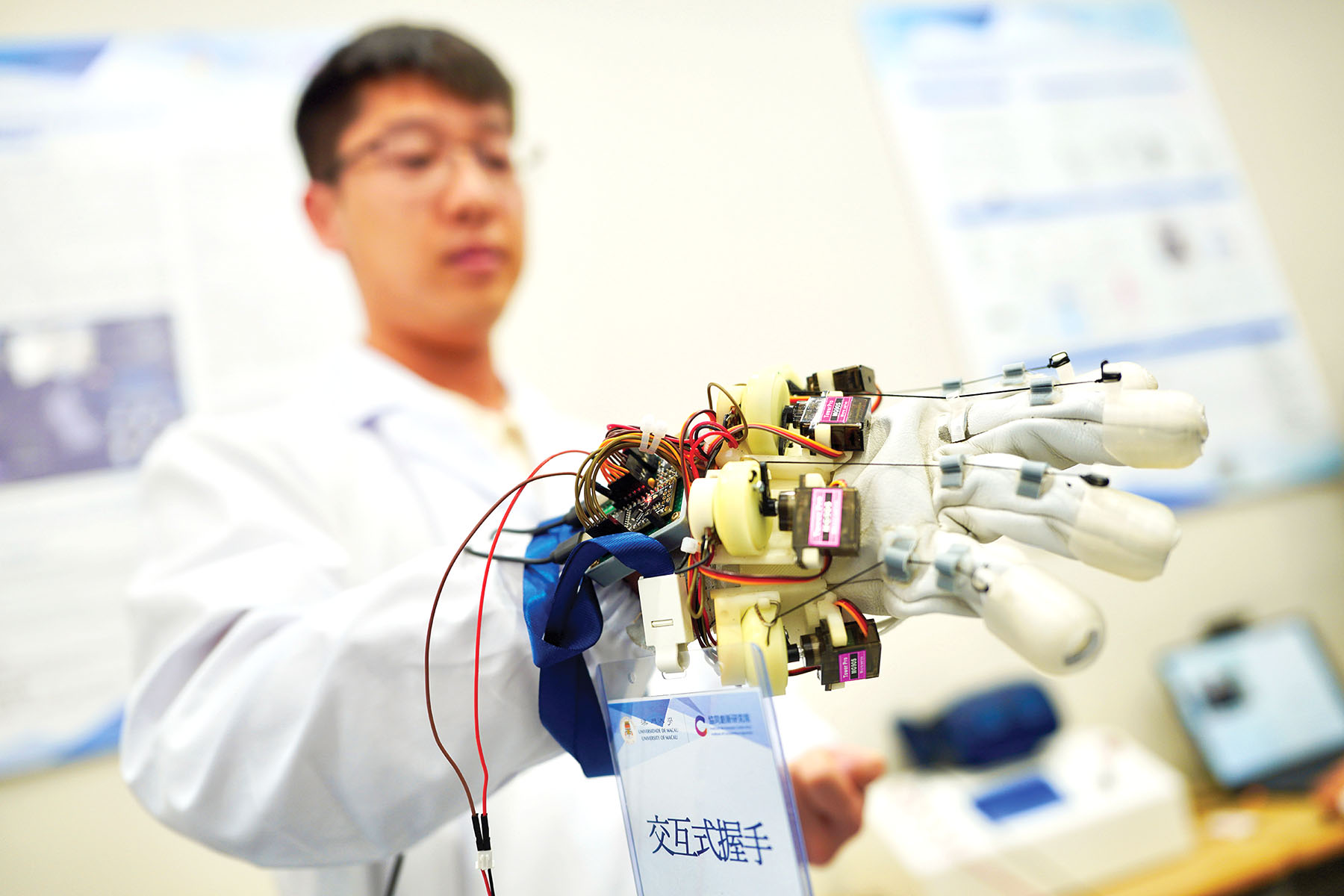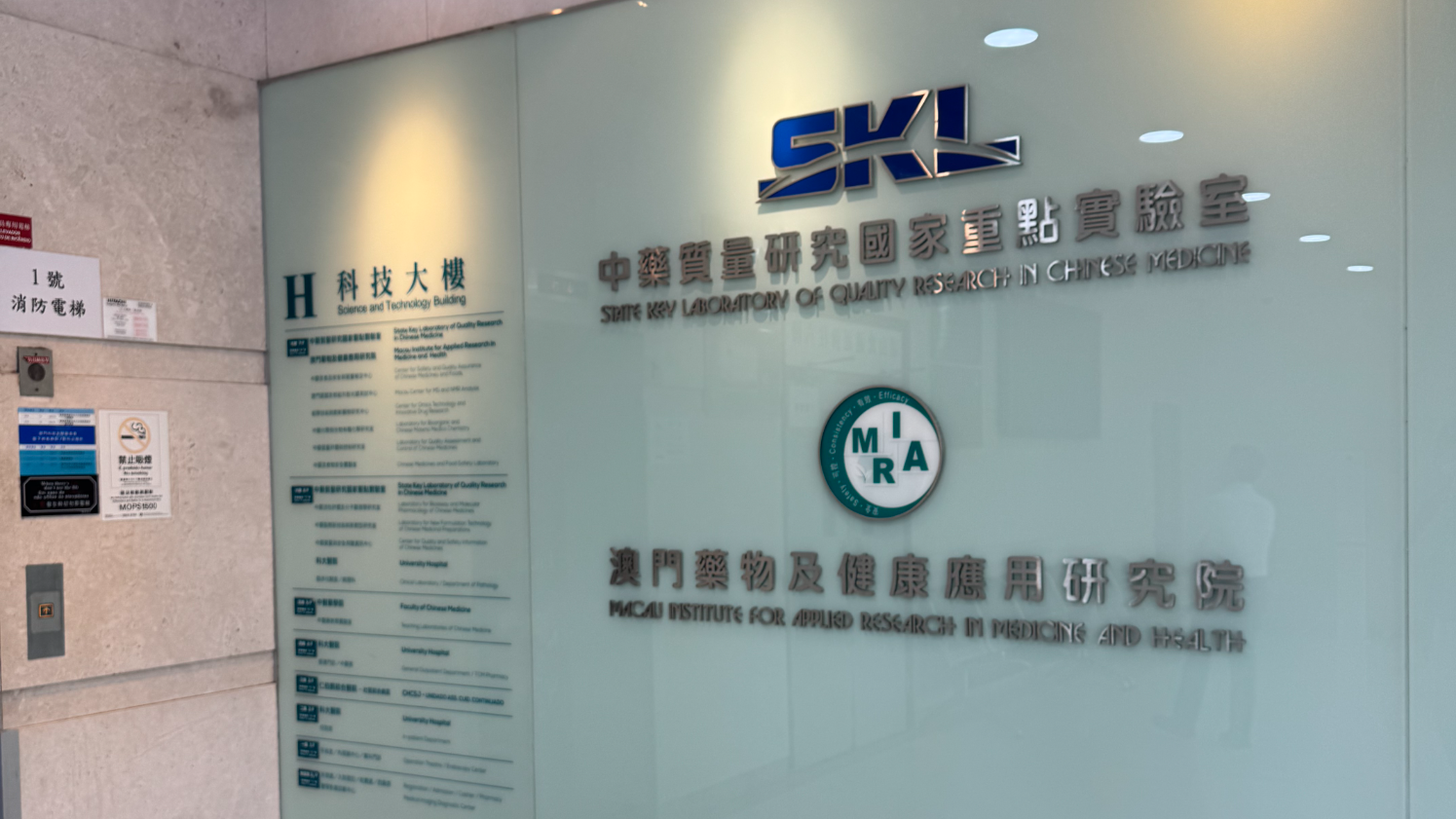
The Macao Special Administrative Region is positioning itself as a leading research hub in South China, driving global collaboration in areas such as aerospace science and traditional Chinese medicine (TCM), local experts said on Monday.
They made their remarks during exchange sessions with journalists from various parts of the country who are attending a seven-day media tour to study the economic vitality and prospects of the Guangdong-Hong Kong-Macao Greater Bay Area (GBA). Macao is the third stop on the trip, following Shenzhen and Hong Kong.
He Yao, a TCM specialist at Macau University of Science and Technology (MUST), said that Macao’s academic strengths and global ties can help overcome challenges in the global recognition of TCM, such as the lack of internationally standardized regulations.
READ MORE: Macao’s integration into GBA fuels enterprise development
He, who is in charge of MUST’s Macao Translational Medicine Center, said that advancements in artificial intelligence (AI) and the establishment of comprehensive databases can now help establish reliable, modern standards, which have brought TCM to a pivotal moment in terms of enhancing worldwide recognition of a medical tradition that has protected the health of people for thousands of years.
Thanks to Macao’s extensive international connections, the city is well-placed to promote the global exchange of TCM, which He said, is a “green treasure trove” because of its low toxicity.
The city has already partnered with numerous TCM institutions on the Chinese mainland, leveraging their clinical data to transform Macao into a global showcase for TCM and contribute to international public health, He added.
“China has made significant technological breakthroughs over the past two decades. While global integration remains crucial, we take pride in utilizing domestic expertise to help set new international standards,” He said.
Macao’s focus on TCM aligns with the city’s broader strategy to diversify its gaming-driven economy by fostering high-tech industries, modern financial services, and cultural tourism.

Fan Wenjiao, a postdoctoral researcher at MUST’s Macao Translational Medicine Center, said the institution provides an exceptional platform for young scientists like her to advance their studies, adding, “We also receive housing subsidies and other daily life support.”
Wang Jianman, a doctoral student, chose the center over other prestigious TCM institutions, including the mainland’s Jilin University and Tongji University. “I hope to continue my postdoctoral research here,” he said.
Li Sen, a technician at MUST’s Data Center for Science and Application of Macao Satellites, emphasized Macao’s role in fostering global scientific exchanges amid external curbs on China’s high-tech development.
Thanks to the “one country, two systems” principle, Macao can serve as an alternative venue for international collaboration when mainland exchanges are restricted from doing so, Li said, citing an upcoming academic seminar in May, which will be co-hosted by MUST and the European Space Agency (ESA), on the Macau Science Satellite-1 — the first scientific satellite joint developed by the mainland and Macao.
“So far, around 60 overseas scientists have registered (for the seminar),” Li said.
Zhang Keke, dean of MUST’s Macao Institute of Space Technology and Application, described Macao as a vital bridge between Chinese and Western scientists, and a contributor to the nation’s space technology advancement.
“We must mobilize existing resources to boost Macao’s space technology sector and support the city’s economic diversification,” he said in a written reply.
Macao’s role in promoting international research exchange extends to the humanities. Since 2013, MUST has launched a project to collect, categorize and digitalize old maps of Macao from all over the world to study how the city has evolved in East-and-West exchanges since the Age of Discovery.
So far, the project has collected over 11,500 ancient maps from more than 50 institutions across over 20 countries and regions.
On Sunday, the media group, comprising 100 journalists from the Chinese mainland, Hong Kong and Macao, interviewed Macao Chief Executive Sam Hou-fai, seniors officials, and young entrepreneurs, focusing on the city’s policy initiatives to promote economic diversification and youth development. Journalists also visited Macao’s Giant Panda Pavilion to explore the city’s tourism appeal.
READ MORE: Macao youths align careers with national development
The group’s exploration continues on Tuesday in Zhuhai, the final part of the Greater Bay Area trip.
Contact the writers at lilei@chinadailyhk.com


